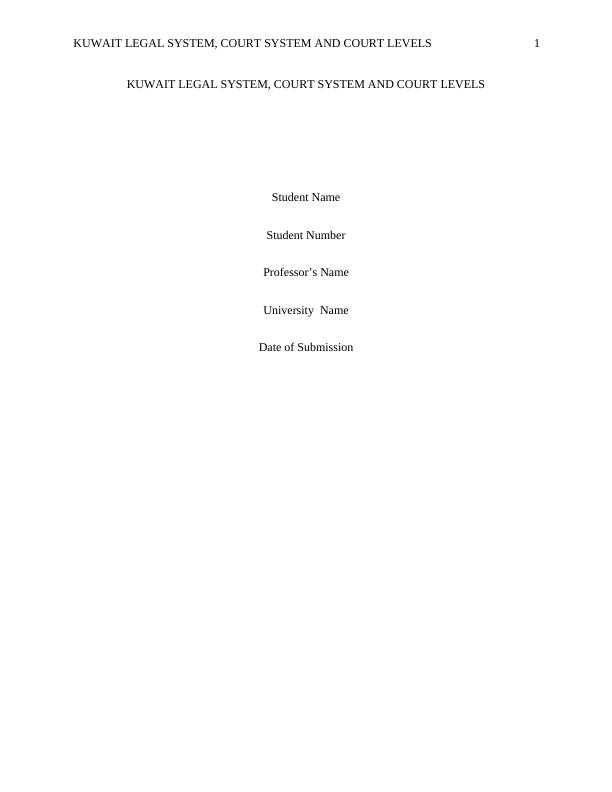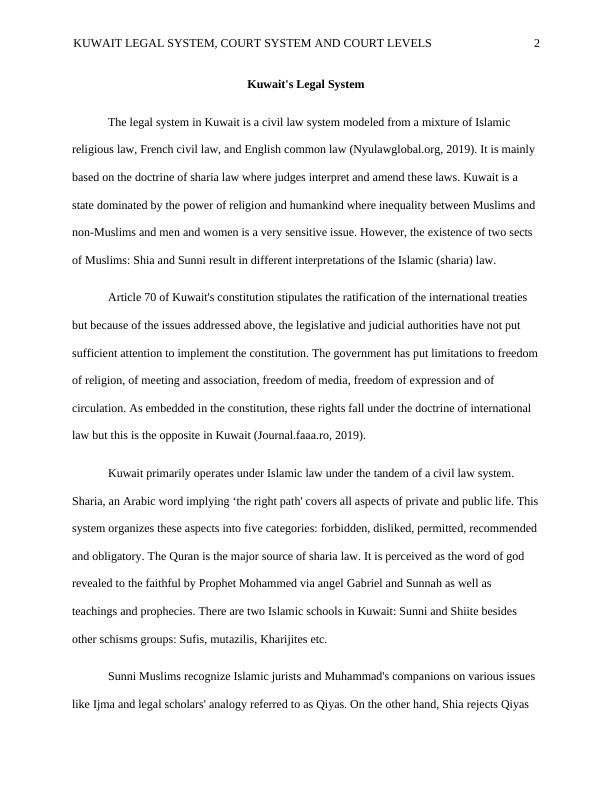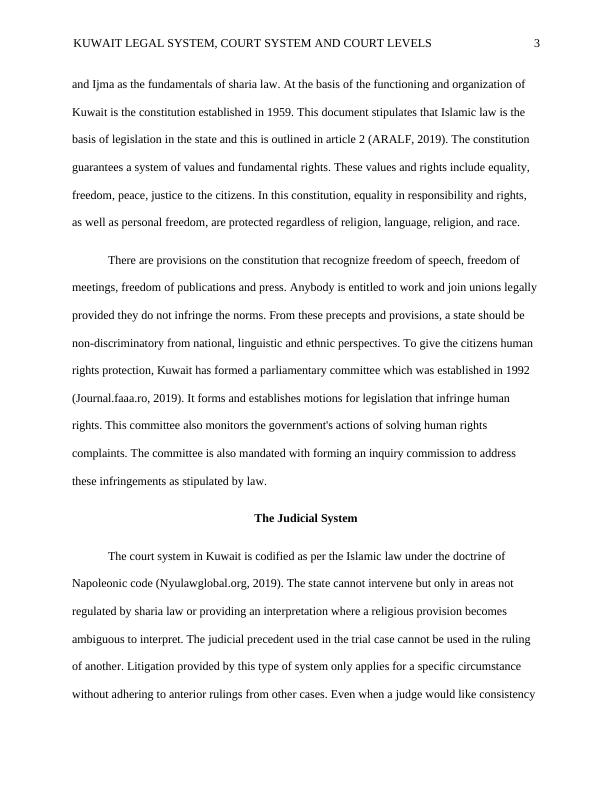Understanding Kuwait's Legal System, Court System, and Court Levels
8 Pages1979 Words222 Views
Added on 2023-04-24
About This Document
In this document we will discuss about Understanding Kuwait's Legal System, Court System, and Court Levels and below are the summary points of this document:-
-
Kuwait's legal system is a civil law system influenced by Islamic religious law, French civil law, and English common law.
-
Sharia law is the basis of Kuwait's legal system, with different interpretations due to the existence of Sunni and Shia sects.
-
The Kuwaiti constitution guarantees fundamental rights and freedoms, including equality, freedom of speech, and freedom of assembly.
Understanding Kuwait's Legal System, Court System, and Court Levels
Added on 2023-04-24
ShareRelated Documents
End of preview
Want to access all the pages? Upload your documents or become a member.
Legal System of United Arab Emirates: Criminal Code, Court System and Unique Features
|8
|1984
|133
Assessment of Protection of Human Rights by Australian Government
|11
|2347
|82



